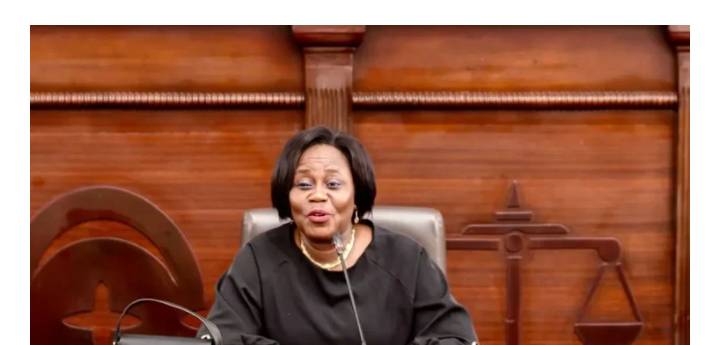Ghana’s Supreme Court is set to deliver a crucial judgment on Tuesday, November 12, 2024, concerning the recent dispute over the declaration of four parliamentary seats as vacant by Speaker Alban Bagbin. The decision, anticipated by both sides of the political aisle, could significantly impact the boundaries of parliamentary authority and judicial oversight in Ghana.
The controversy began on October 17, 2024, when Speaker Bagbin announced that four Members of Parliament (MPs) had breached constitutional obligations, leading him to declare their seats vacant. Bagbin’s move was based on his interpretation of the 1992 Constitution, which he argued grants the Speaker authority to act in cases of significant constitutional violation. However, his decision has been met with opposition, notably from Alexander Afenyo-Markin, leader of the New Patriotic Party (NPP) parliamentary caucus. Afenyo-Markin contends that Bagbin exceeded his powers by making the decision unilaterally, without seeking judicial intervention or initiating by-elections, thereby sidelining due legal processes.
Central to the legal debate is the question of whether the Speaker has the constitutional authority to make such declarations independently. Afenyo-Markin argues that such power rests with the judiciary, not with the Speaker of Parliament. According to his legal team, the Speaker’s action deprived the affected constituents of their right to representation and effectively disenfranchised them.
Following Afenyo-Markin’s suit, the Supreme Court issued an injunction to suspend further action on the vacated seats until a final ruling could be issued. Speaker Bagbin responded by filing a motion to overturn the injunction, asserting that the suspension limited his capacity to maintain parliamentary order and integrity. Bagbin’s motion argued that his actions fell within his duty to uphold the principles of parliamentary governance and accountability. However, the Supreme Court dismissed his request, affirming its previous injunction.
Adding to the complexity of the case, Attorney-General Godfred Yeboah Dame has raised concerns about the Speaker’s legal representation. Dame questioned the legitimacy of Thaddeus Sory, Bagbin’s counsel, on grounds of non-compliance with Public Procurement Authority (PPA) regulations. This procedural contention has introduced further layers to an already intricate case, suggesting that even the methods of representation in this trial are under scrutiny.
As the Supreme Court prepares to deliver its judgment, many observers are focused on the potential precedent the decision might set. If the court rules in favor of Afenyo-Markin, it would underscore the judiciary's role as the ultimate interpreter of the Constitution, potentially restricting the Speaker’s discretionary authority in matters involving parliamentary vacancies. A decision supporting Bagbin, on the other hand, could reinforce the Speaker’s power to act decisively in enforcing constitutional mandates within Parliament, possibly without requiring judicial approval.
The upcoming ruling will provide clarity on the constitutional limits of the Speaker’s authority in Ghana and could have lasting implications for the nation's balance of power between Parliament and the judiciary.
Source: Citi Newsroom


